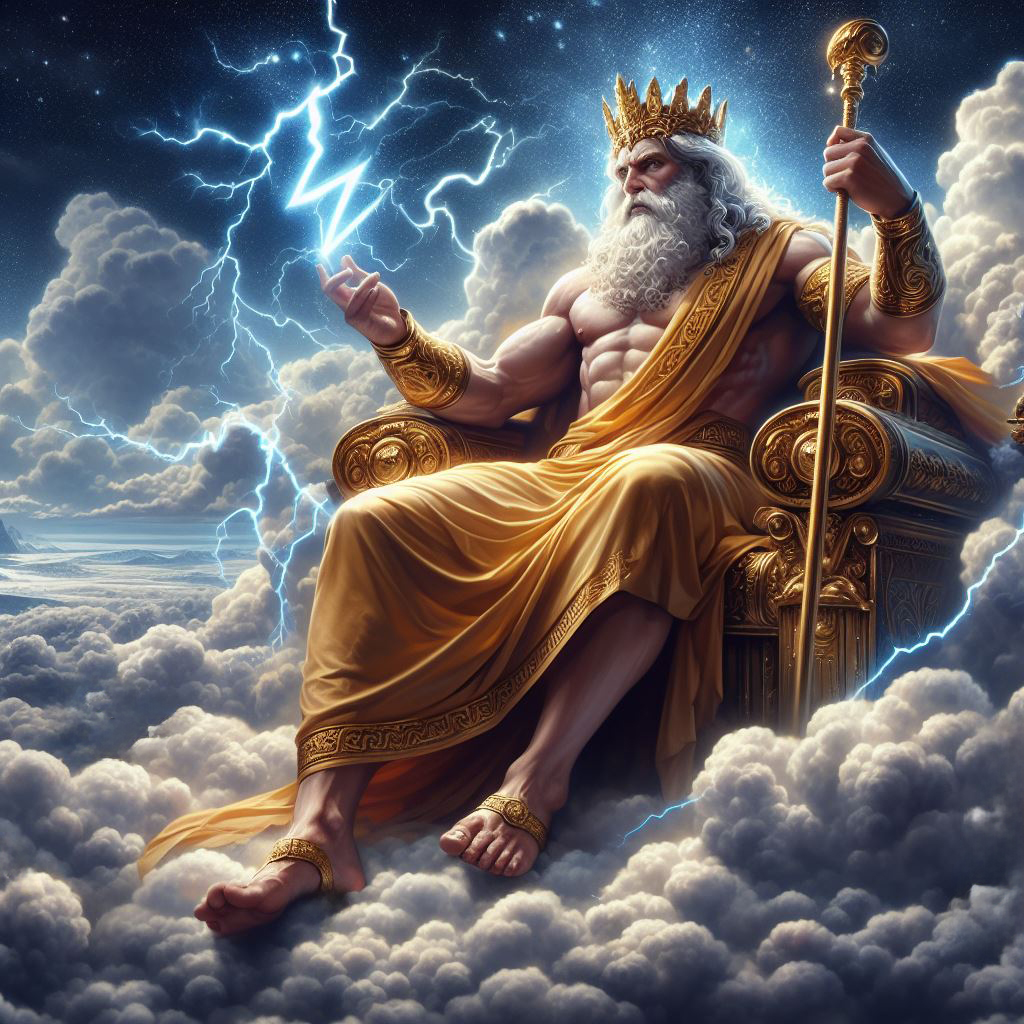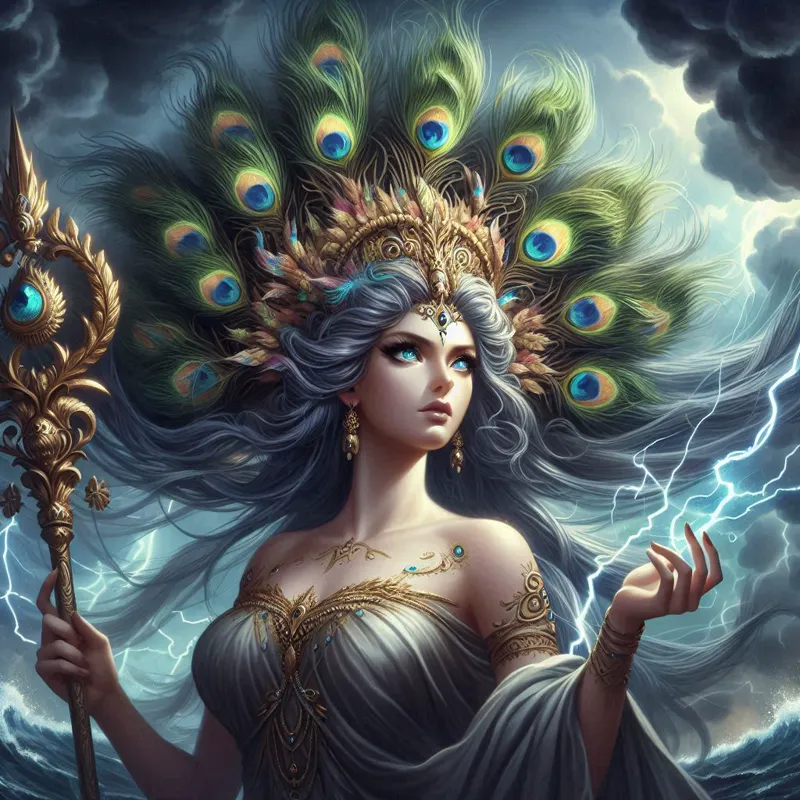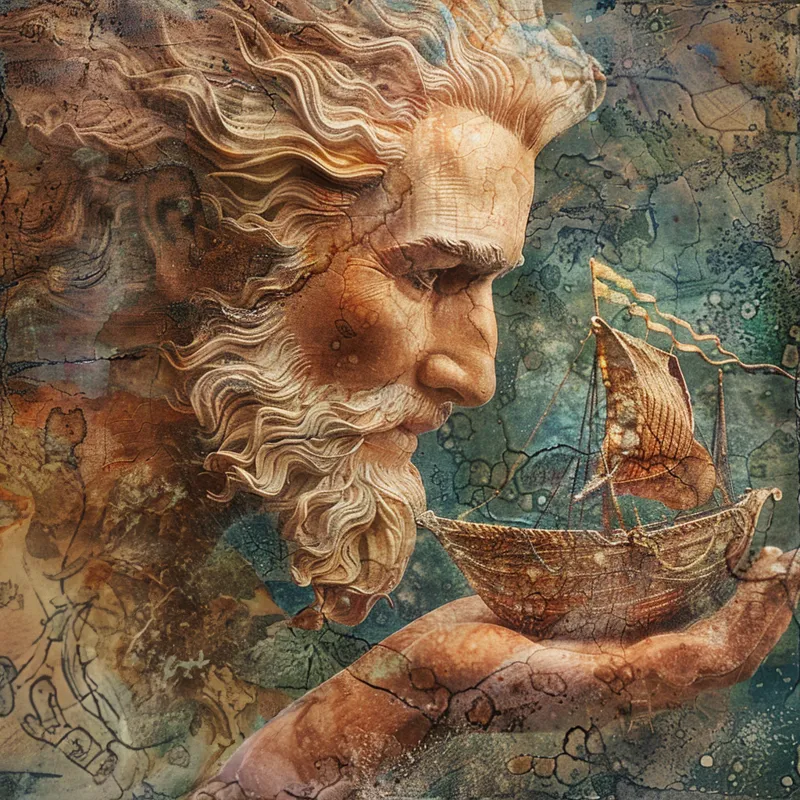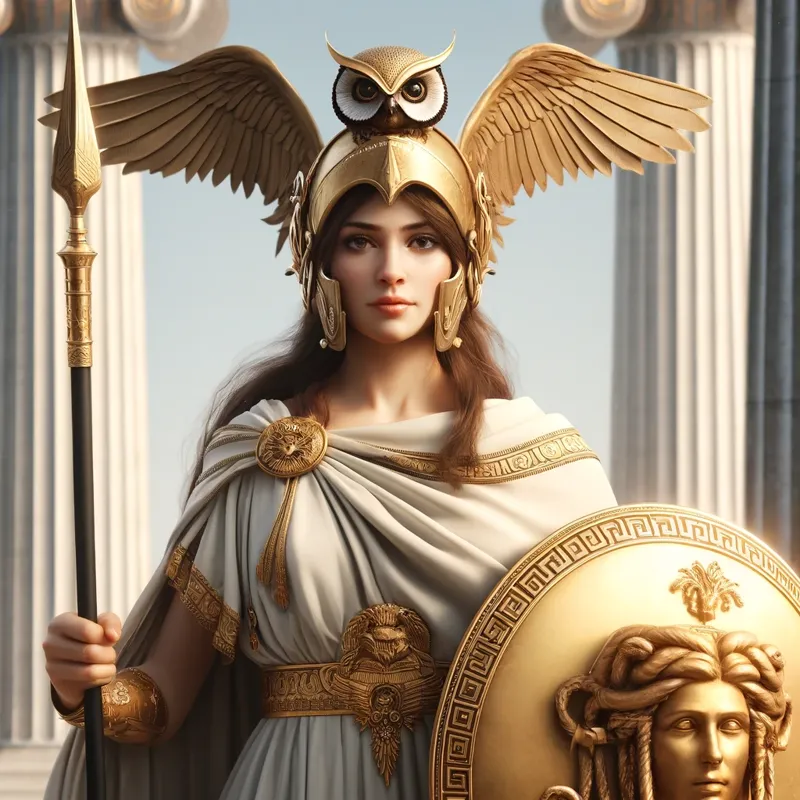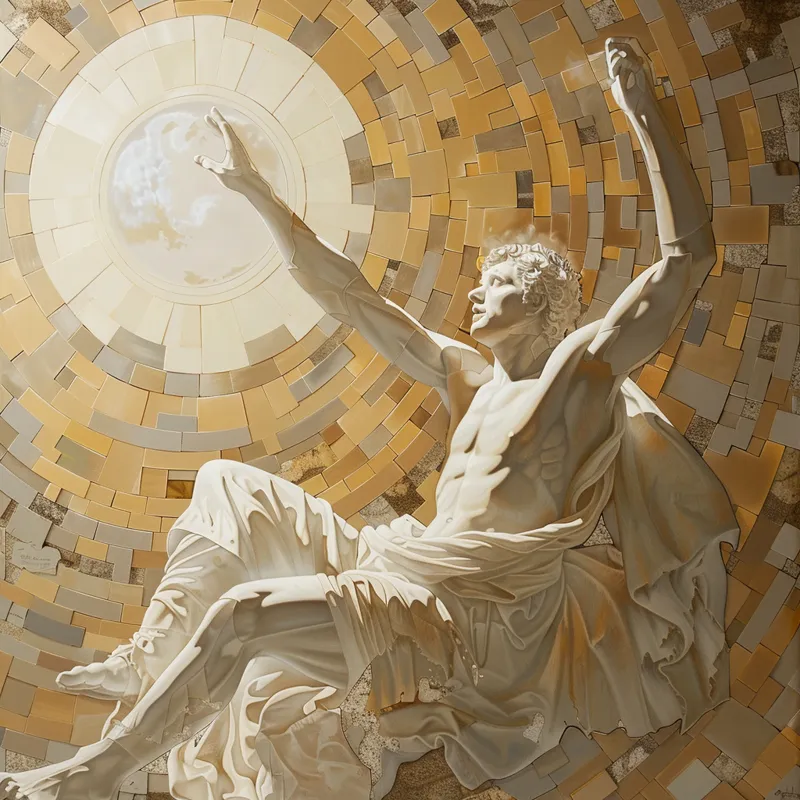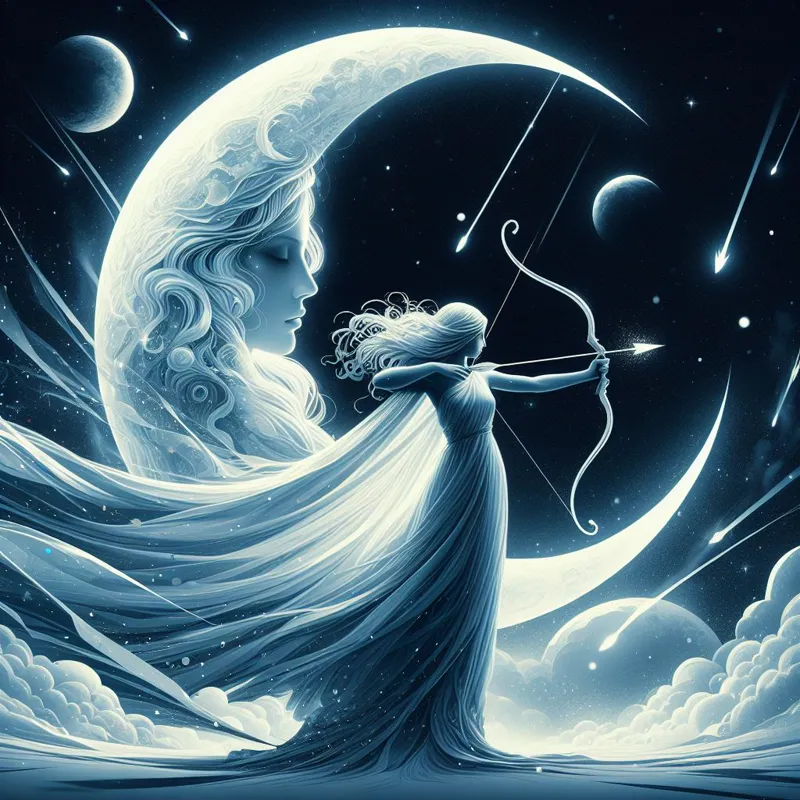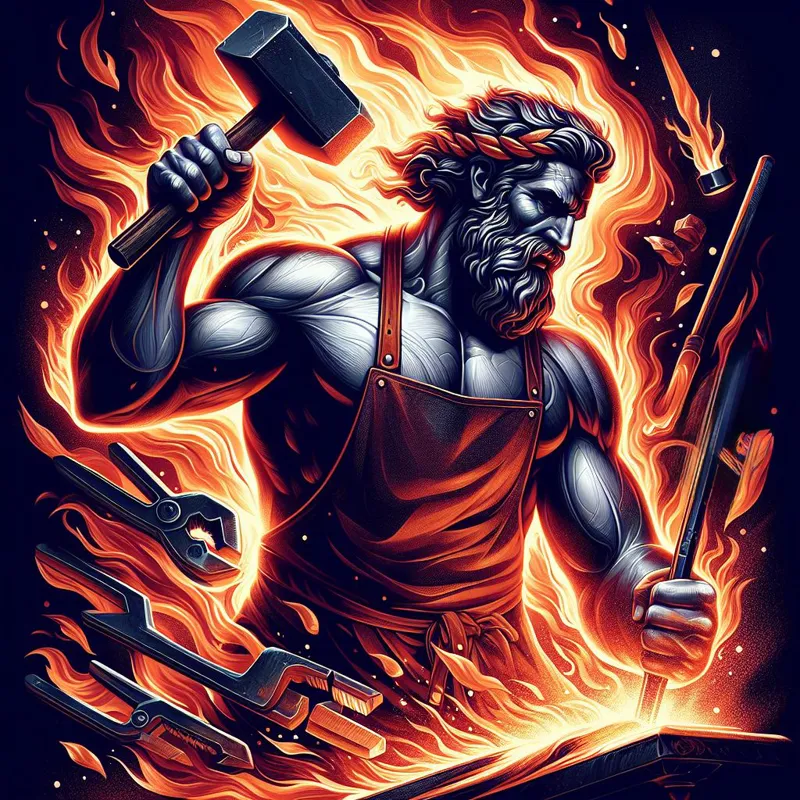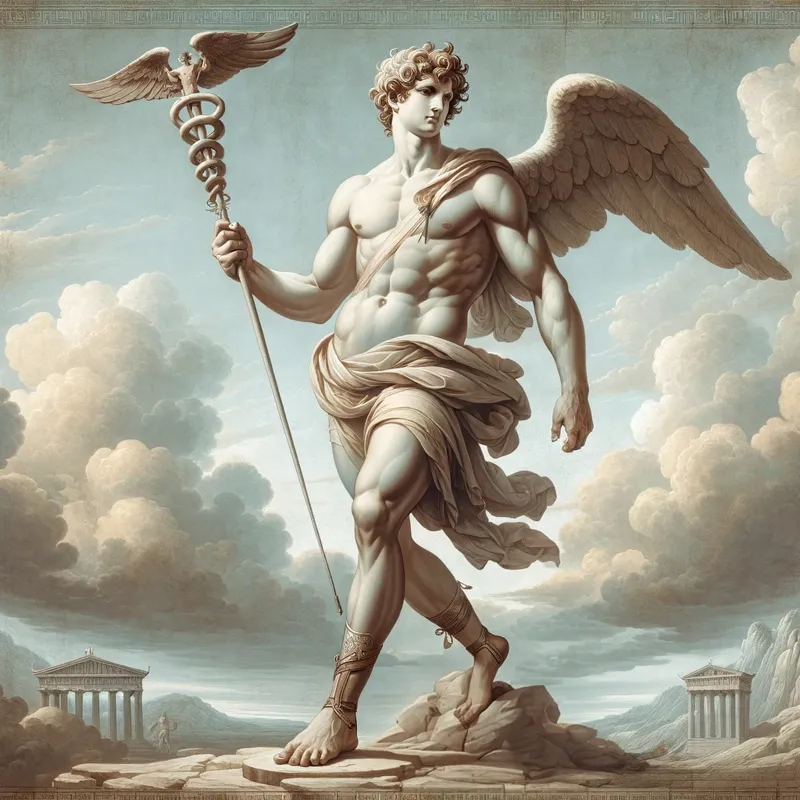
Written in our bones
In the beginning, there was only Chaos, a formless expanse. From this void emerged the first deities and titans, setting the stage for a saga of power, betrayal, and transformation. This is the story of the birth of the Olympian gods, a tale woven into the fabric of the universe, chronicling the ascent of the deities who would come to embody the forces of nature, human emotions, and the mysteries of existence.
The Emergence of Titans
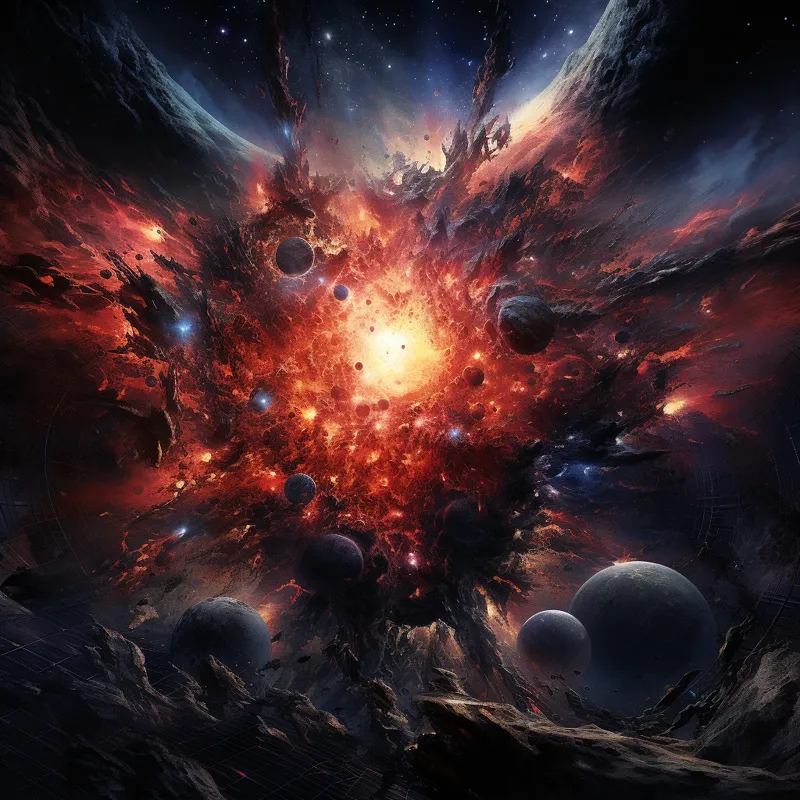
All was chaos
From Chaos came Gaea, the Earth, and Uranus, the Sky. Their union gave birth to the Titans, formidable beings who would lay the foundation of the world's order. Among them were Cronus and Rhea, destined to play pivotal roles in the shaping of the cosmos. These Titans embodied the raw, unbridled forces of nature, ruling over a primal world where the rules of the universe were yet to be written.

He, our fathers' father

She, our mothers' mother
Cronus, fearing a prophecy that he would be overthrown by his offspring, swallowed each of his children at birth. Rhea, distraught and desperate, devised a plan to save her youngest, Zeus. She tricked Cronus by giving him a stone wrapped in swaddling clothes to swallow, while Zeus was whisked away to be raised in secret, setting the stage for a clash that would forever change the course of history.

Flesh and bone

Catalyst
Zeus' Rebellion and Victory

We are our scars
Zeus, raised in secret, grew in power and wisdom. Upon reaching adulthood, he sought to challenge his father, Cronus, and free his siblings. Aided by the titan Metis, Zeus tricked Cronus into drinking an emetic potion. The mighty Cronus disgorged the siblings he had consumed, and thus, Hestia, Demeter, Hera, Hades, and Poseidon were freed.

My father must be stopped
The stage was set for a cataclysmic battle, known as the Titanomachy, pitting Zeus and his liberated siblings, along with allies among the Titans, against Cronus and his supporters. The war raged for ten long years, but ultimately, Zeus and his allies emerged victorious. The defeated Titans were cast into Tartarus, and Zeus became the ruler of the cosmos, marking the beginning of the reign of the Olympian gods.

From the belly of the beast

The perpetual war for peace
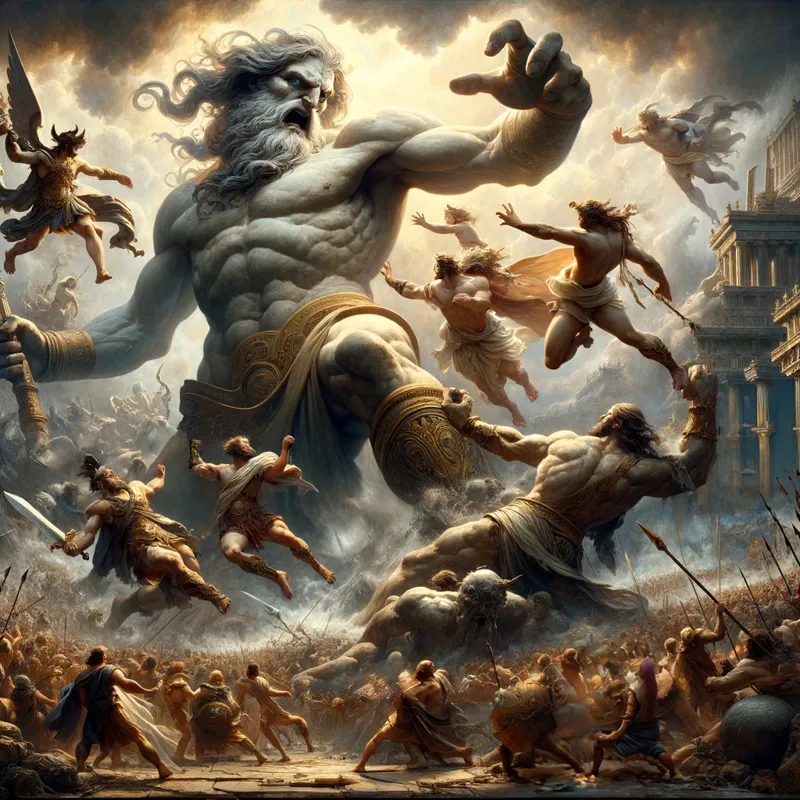
Gone, but should not be forgotten
The Division of the Universe
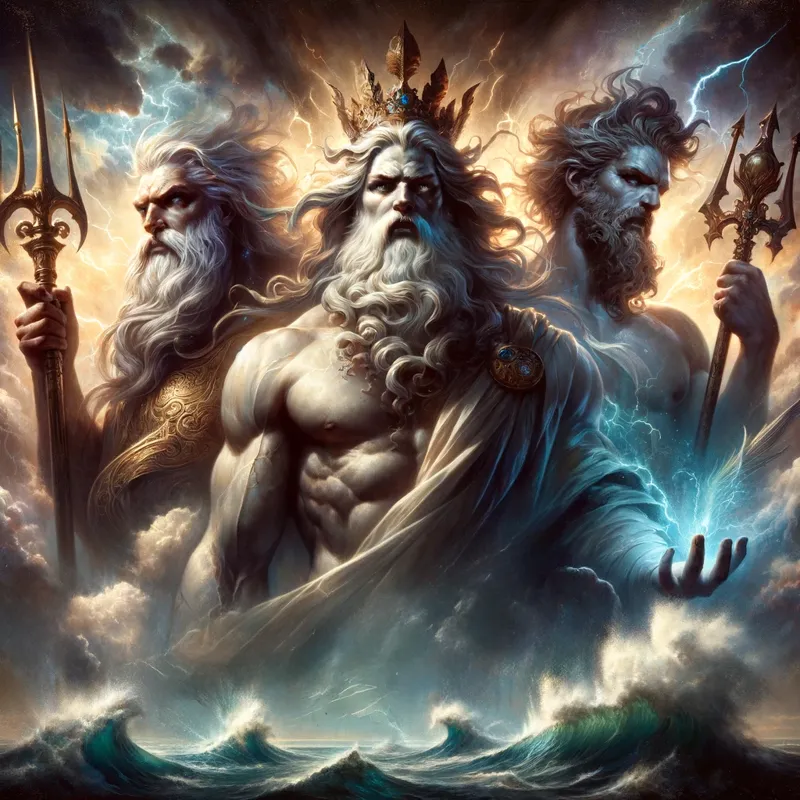
I must be become we
In the aftermath of their victory, Zeus and his brothers, Poseidon and Hades, cast lots to divide the universe among themselves. Zeus won the heavens, becoming the supreme ruler of gods and mortals. His authority was unmatched, and his will was law on Mount Olympus and beyond.

Split along the lines of truth
Poseidon claimed the seas and oceans, ruling over all creatures within and the watery realms themselves. Hades, drawing the unseen lot, became the ruler of the Underworld, the domain of the dead. Though each brother ruled their respective realms, their influence and power often intersected in the affairs of gods and mortals alike.
The Rise of Hera and Athena
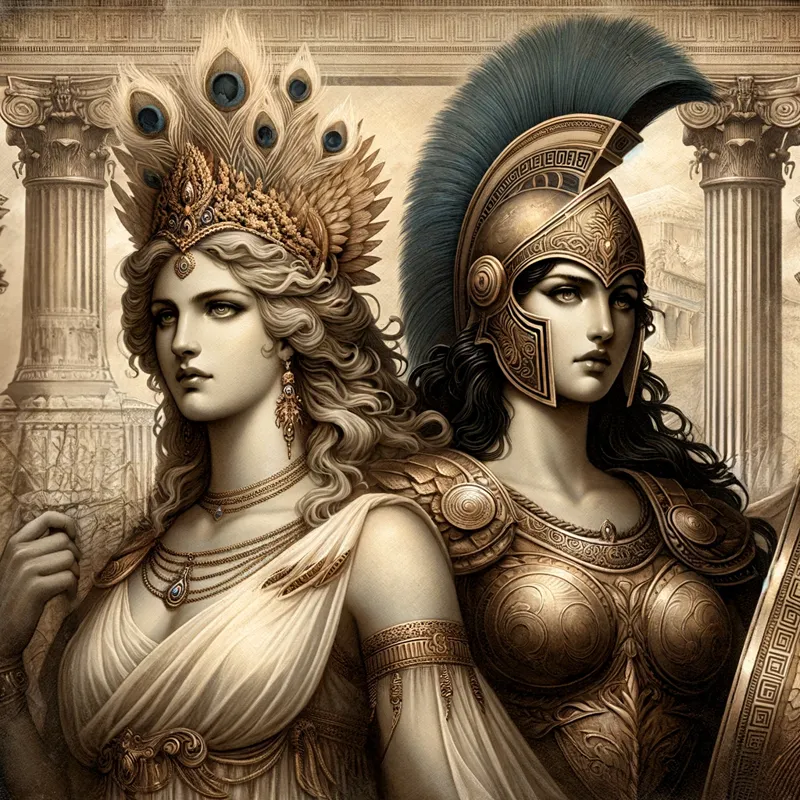
Many faces
Hera, Zeus' sister and wife, became the queen of the gods. She was revered as the goddess of marriage and childbirth, embodying the aspects of family and loyalty. Hera's relationship with Zeus was complex, marked by strife due to his infidelities, yet she remained an integral figure in the pantheon, revered and respected by gods and mortals.
Athena, born from Zeus' head fully grown and clad in armor, symbolized wisdom, strategy, and warfare. Her birth was unique, signifying her importance as one of the most influential Olympian gods. Athena was revered for her intelligence and was often sought after for counsel in matters of war and peace, playing a crucial role in the lives of heroes and mortals.
The Realm of Demeter and Apollo

My reflection
Demeter, goddess of agriculture and the harvest, brought fertility to the land. She was deeply connected to the cycle of life and death, a bond epitomized in the tale of her daughter, Persephone. Her grief during Persephone's absence from the earth brought winter, while her joy upon her return heralded spring, intertwining her emotions with the seasons.
Apollo, son of Zeus and the Titaness Leto, was the god of light, music, and prophecy. His twin sister, Artemis, ruled the hunt and the moon. Apollo's oracle at Delphi was renowned throughout the ancient world, a place where mortals and gods alike sought guidance. His influence extended over the arts, healing, and the sun, making him a central figure in the Olympian order.
The Domain of Aphrodite and Ares

Love is a battlefield
Aphrodite, born from the sea foam, was the goddess of love and beauty. Her powers influenced both gods and mortals, weaving the threads of desire and affection through the hearts of all. She often played a key role in the dramas of Olympus, her affairs and whims causing ripples across the heavens and earth.
Ares, the god of war, embodied the brutality and violence of battle. Unlike Athena's strategic and wise approach to warfare, Ares reveled in the chaos and bloodshed. His tempestuous nature often brought him into conflict with other gods, yet his power and influence were undeniable in the human world, where war was a constant presence.
The Power of Poseidon and Hades
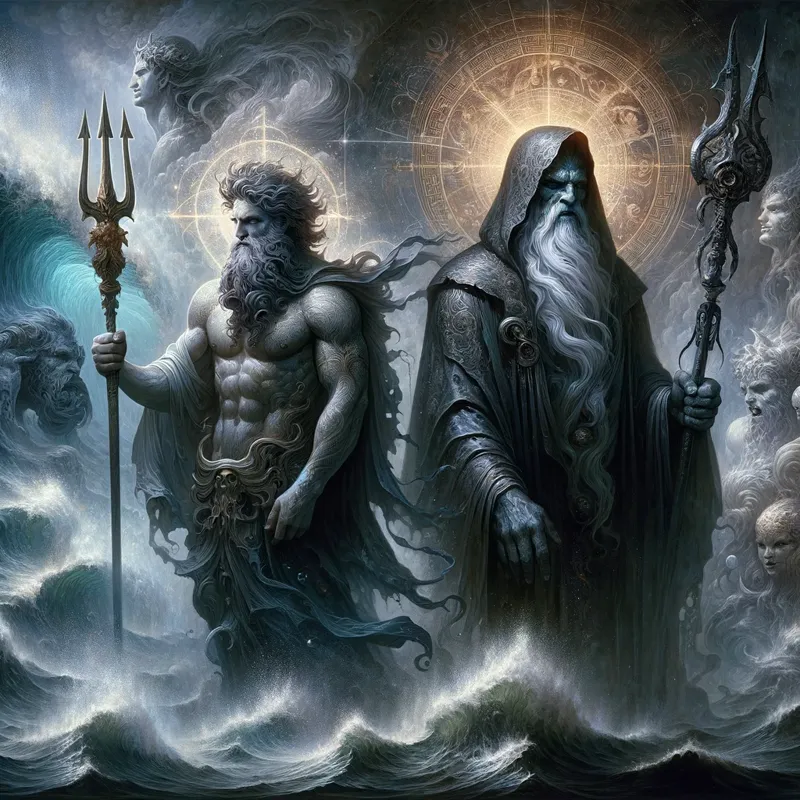
As deep as the ocean and as serious as death
Poseidon, lord of the seas, wielded the trident with which he could stir or calm the waters. His mood influenced the ocean's state, from tranquil to tempestuous. Poseidon was also the creator of horses, gifting them to mankind, and his domain extended beneath the waves to the very floor of the ocean.
Hades, ruler of the Underworld, was often misunderstood. While he was stern and implacable, he was also a fair judge of the souls that entered his realm. His kingdom was vast, containing the souls of the departed. Hades rarely left his shadowy domain, but his influence was felt whenever death touched the world of the living.
Echoes of Humanity
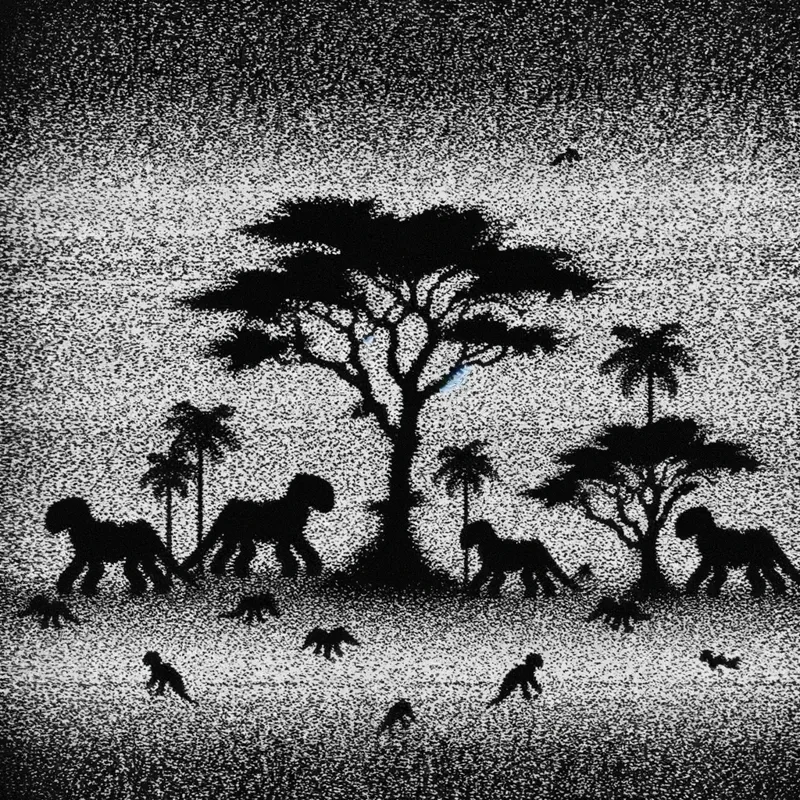
How should the world be organized?
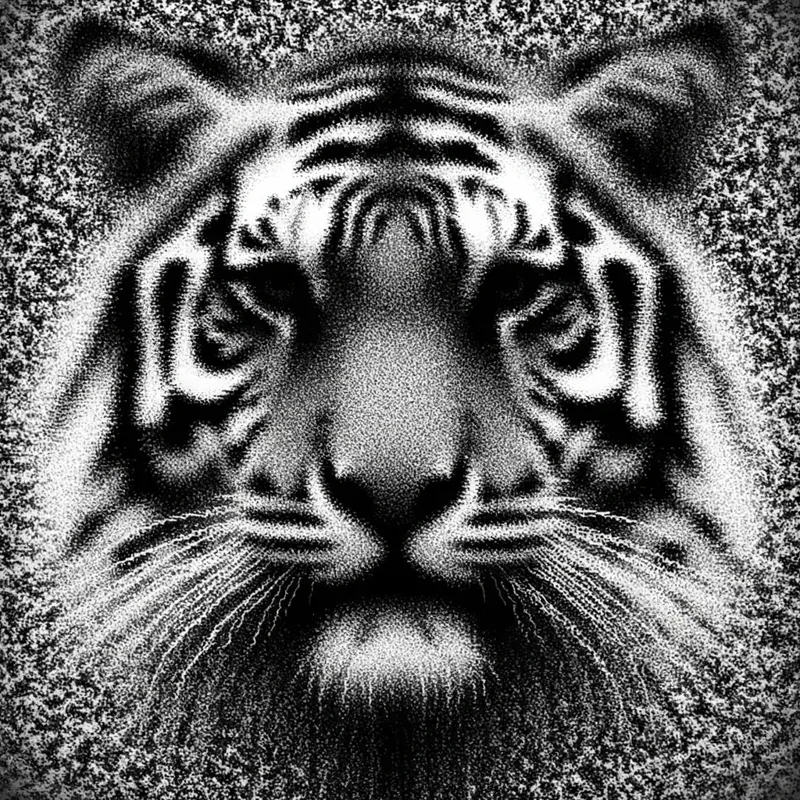
What's important?
The narrative of the Olympian gods is more than a collection of mythological tales; it is a rich tapestry that reflects the complexities of human nature and the universal quest for understanding our place in the universe. Each deity, with their distinct personalities and domains, symbolizes different aspects of the human experience, from the depths of the subconscious to the heights of aspiration and creativity.

High resolution
At its core, the mythology of Olympus serves as a metaphorical framework for the exploration of human psychology and societal dynamics. The gods, with their immortal yet profoundly human traits – such as Zeus' leadership and occasional tyranny, Hera's maternal protectiveness intertwined with jealousy – offer insights into the virtues and vices inherent in humanity. The interplay between these divine characters mirrors the complexities of human relationships and societal structures.

Known and unknown
The Olympian saga also delves into existential themes, such as the search for meaning and the struggle against fate. The stories often highlight the tension between destiny and free will, a theme that resonates with the human condition. The gods themselves, despite their immense power, are subject to the decrees of Fate, just as humans are bound by the limits of their mortality and circumstances.

The wordsmith's legacy
Thus unfolds the saga of the Olympian gods, a narrative etched into the annals of time. From the chaotic beginnings to the establishment of their divine order, these gods' stories are more than mere myth; they are the embodiment of human fears, hopes, and the eternal quest for understanding the mysteries of existence. In their tales, we find reflections of our own world, a mirror held up to the very essence of what it means to be human.


